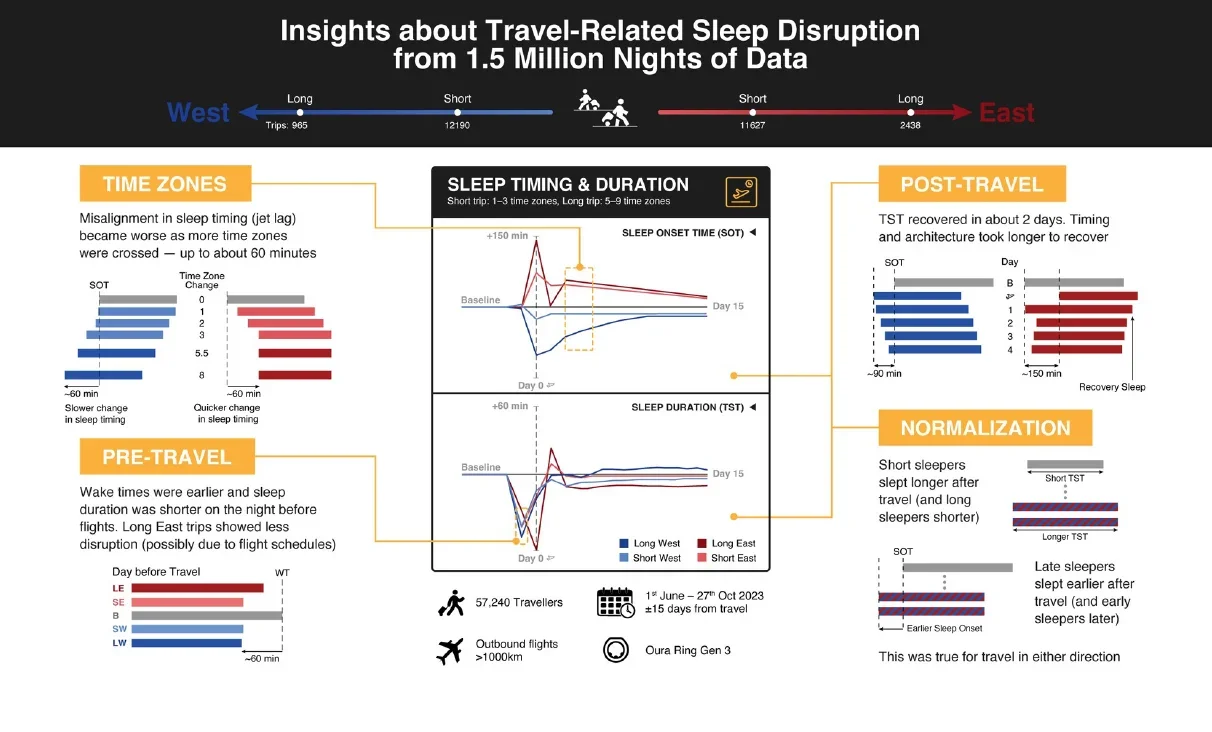Beyond Jet Lag: New NUS Study Unveils Extent of Travel-Related Sleep Disruption
Published: 09 Apr 2025

Graphical Abstract of Insights about Travel-Related Sleep Disruption from 1.5 Million Nights of Data © The Author(s) 2025. Published by Oxford University Press on behalf of Sleep Research Society.
A collaborative study conducted by researchers at the Centre for Sleep and Cognition at the NUS Yong Loo Lin School of Medicine (NUS Medicine) and ŌURA found that while sleep duration recovers quickly, sleep timing and sleep architecture can take significantly longer to realign when traveling across time zones.
Led by Senior Research Fellow Adrian Willoughby and Professor Michael Chee, Director of the Centre for Sleep and Cognition at NUS Medicine, researchers conducted a comprehensive analysis of sleep during 60,000 trips, utilising 1.5 million nights of data from the Oura Ring to provide the first large-scale, real-world study of jet lag recovery to date.
Jet lag is a known cause of sleep disturbance during travel, but it is not the only factor. Travellers often wake up early to catch flights, shortening sleep the night before departure. While flights later in the day tend to have less impact on sleep the night before traveling, sleeping on overnight flights poses challenges, often leading to impaired performance and increased daytime sleepiness. This restricted sleep typically results in early bedtimes and extended recovery sleep the next night. However, crossing time zones complicates this recovery by disrupting the ability to fall asleep at the appropriate local time.
The study found that sleep duration typically returns to baseline within approximately two days, but changes in sleep timing and structure (for example, more night time awakenings) can take more than a week, with eastward travel and crossing multiple time zones amplifying the disruption. A notable feature of this study was its measurement of habitual sleep prior to travel over an extended period as well as a long post-travel follow up.
Future work will seek to assess lifestyle factors contributing to slower or faster recovery of sleep disruption and whether efforts to time light exposure and melatonin ingestion help in real world settings.
Read more in the press release here.

